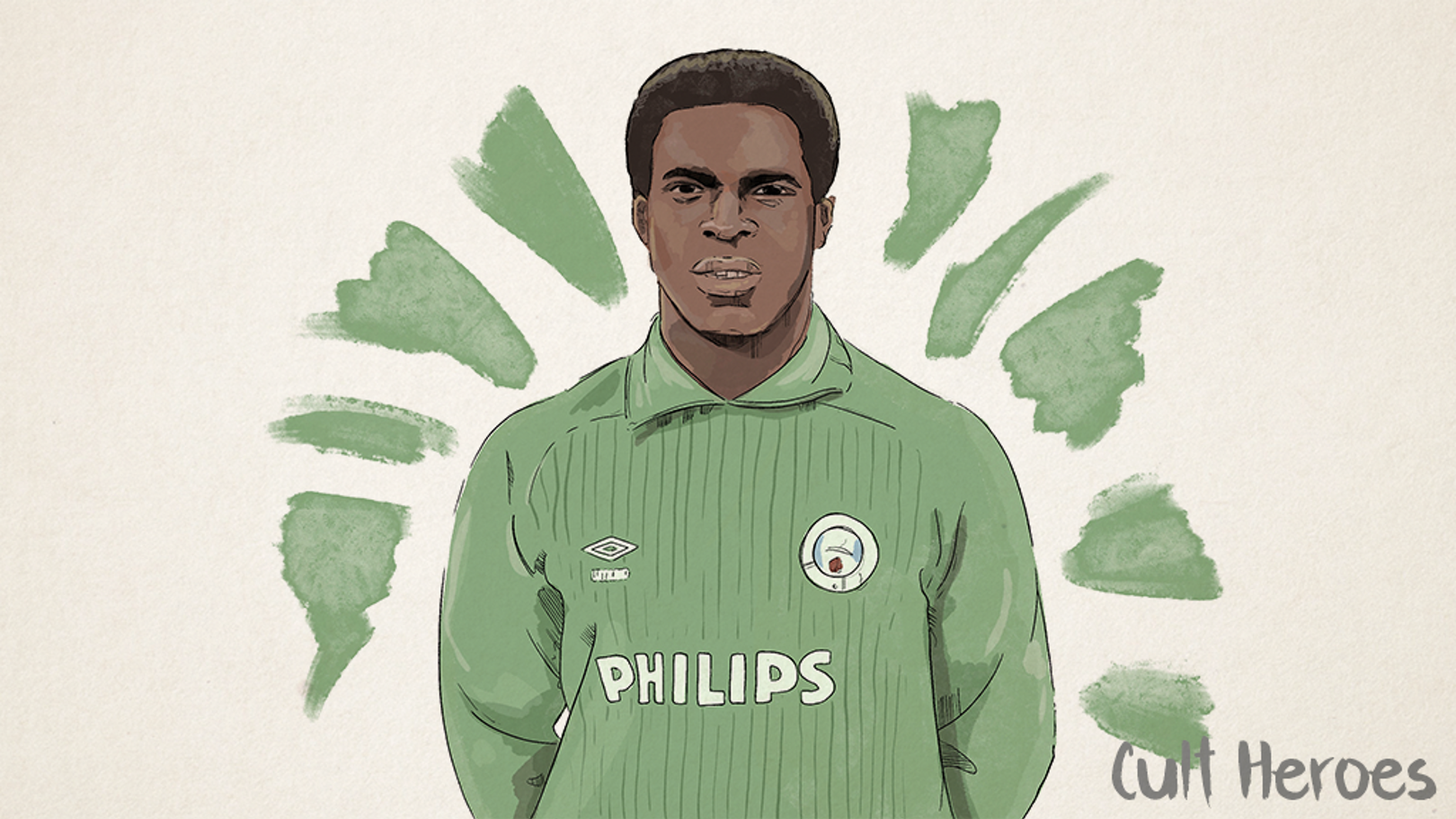Born in Moss Side, a mere stone’s throw from Maine Road, Williams signed for City in July 1978 and had Joe Corrigan and Keith MacRae ahead of him in line for first team football.
Even after a decade of first team football, Corrigan remained steady as a rock and MacRae had already spent the best part of five years in the shadows, waiting patiently for the odd scrap of action.
CITY+ | SIGN UP TO ACCESS EXCLUSIVE CONTENT
Williams was young and had time on his side and he knew that if he bided his time, his chance would surely come. The first glimmer of opportunity came when MacRae joined Portland Timbers in 1981 having made just 70 appearances in eight years at the Club.
Williams stepped up to be Corrigan’s understudy and he made his debut just two games into the 1981/82 season in a 1-1 draw at Notts County. He made another couple of starts later in the campaign.
When Corrigan dislocated his shoulder three games into the 1982/83 season, John Bond called upon the rookie Williams for his first proper run at first team level and he didn’t disappoint.

The City fans took to Alex Williams immediately and he was something of a crowd favourite almost from the word go - but he had arrived at difficult time for the Club.
By the spring of ’83, City were struggling and embroiled in a battle to avoid relegation.
Bond had resigned and Corrigan decided to sever his 17-year association with the Club and try his hand in America. As a result, Williams became the undisputed No.1.
It also meant that - aged just 21 - he had the weight of City’s scrap for survival placed firmly on his inexperienced shoulders, making the decision to allow Big Joe to leave all the more confusing and supporters wondered why interim boss John Benson allowed the events to unfold as they did.
Meanwhile, Williams was pitched into the eye of the storm and was helpless to stop Southampton winning 4-1 at The Dell – City’s sixth defeat in seven games.
Ironically, in his thirteenth appearance for City proved lucky and Williams kept his first clean sheet during a 2-0 win at West Brom as he continued to impress. In the next six matches he kept another two shut-outs, but was on the losing side four times, setting up a final day do-or-die clash with Luton Town.
If Williams could keep the Hatters out for 90 minutes, City would stay up with a point being good enough to ensure survival and seal Luton’s relegation.

But with the score 0-0 at an unbearably tense and packed Maine Road - and with just a few minutes remaining, Luton sub Raddy Antic sent a low drive through a crowded penalty area and the unsighted City keeper was powerless to prevent the ball hitting the back of the net.
The stunned 47,000-plus crowd could barely believe what had happened and there wasn’t enough time to find a leveller.
City were relegated and out of the top division for the first time since 1966.
There was nothing Williams could have done to prevent the fall from grace and the following campaign he proved what a talent he was, winning an army of admirers as he helped City to fourth place in the old Second Division.
He played in all 42 league games and kept 11 clean sheets in 1983/84 and did better still the next season as City reclaimed top-flight status by finishing third and winning promotion back to the top flight.
Williams had been an ever-present again and kept a record 21 clean sheets (until Nick Weaver broke the record on 2000) - a magnificent effort that had the City fans demanding that their No.1 be considered for England.
But after just eight games of the 1985/86 season, Williams injured his back and ruled out for the rest of the campaign.
It was a set-back, but seemingly only a temporary one.
The issue, however, was far more serious than perhaps thought and what should have been his career platform turned into a nightmare with Williams never pulling on the green jersey for City again.

Despite his best efforts to return, things were never the same again and despite going out on loan to Scotland for a short spell with Queen of the South, he never fully recovered from his injury.
He gave it one last try with Port Vale but was forced to retire early aged just 25, with the back injury making playing on impossible.
He could have drifted out of football altogether at that point, but instead, was determined to help youngsters realise their dreams and the former keeper began working for Port Vale as a community officer before returning to Maine Road and later heading up the highly innovative and respected City in the Community.
He won the MBE for his community work in 2002 and, 43 years on from joining the Club, he remains a valued and popular figure at the Club today.
What he might have achieved on the pitch had he not been so unfortunate will never be known, but international recognition would surely have come sooner or later.
Illustration: Ben Wild








